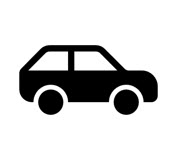As of October 17, 2018, cannabis is no longer a “controlled substance” whose production, possession and sale in Canada are prohibited by the federal Controlled Drugs and Substances Act. But that doesn’t mean there are no limits on growing, possessing, using and selling marijuana. Canada’s Cannabis Act, Cannabis Regulations and provincial laws that vary across the country come into force on the same day.
To understand what is, and is not, legal in British Columbia you have to look at both the federal and provincial laws. “Ignorance of the law is no excuse”, so anyone intending to possess or otherwise deal with cannabis in British Columbia should read the BC legislation and regulations like the Cannabis Control and Licensing Act and Cannabis Control Regulation, as well as Canadian law including the Cannabis Act and Cannabis Regulations. See too the provincial and federal websites GetCannabisClarity.ca and Canada.ca/Cannabis.
This eNews attempts to describe very briefly some of the changes to federal and provincial laws taking effect on October 17, 2018. It is not comprehensive – there are a lot of new laws related to cannabis! This article provides general information only, should not be cited in court, and is not a substitute for reading the law itself and/or consulting a lawyer.
Who can possess marijuana in BC?
Only adults aged 19 and over. The federal law refers to age 18, but the BC age limit of 19 applies in this province.
Cannabis Control and Licensing Act section 1
Minors (people under 19) may not possess, consume, produce, supply, sell, purchase or attempt to purchase cannabis or a cannabis accessory.
Where can adults obtain it?
Cannabis products including fresh or dried cannabis, and cannabis oil, plants or seeds may be sold only by authorized retailers. These products must be purchased from a provincially regulated retailer - in BC from stores operated by the Liquor Distribution Branch or from licensed private retail stores.
Edibles and cannabis concentrates are not currently listed as products that can be sold, although the Cannabis Act says they will be added within a year.
Possessing cannabis purchased illegally and selling, distributing or possessing it for sale or distribution without authorization are offences subject to penalties - some of which are up to 14 years in jail.
The Cannabis Act also imposes restrictions on promoting, packaging and labelling cannabis, and on enticement to use it aimed at youths.
Limits on quantity
In a public place in BC, adults at least 19 years old are allowed to possess up to 30 grams of dried cannabis or its equivalent. Equivalent amounts for 1 gram of dried cannabis are:
• 15 grams of solids containing cannabis
• 70 grams of non-solids containing cannabis (liquid product such as cannabis oil)
• 0.25 grams of cannabis solid and non-solid concentrates
• 1 cannabis plant seed.
Cannabis Control and Licensing Act section 52 and Cannabis Act Schedule 3
The Cannabis Act defines a “public place” as “any place to which the public has access as of right or by invitation, express or implied, and any motor vehicle located in a public place or in any place open to public view.” The Cannabis Control and Licensing Act defines a “public place” in similar but slightly different language, as:
(b) any vehicle or boat located in a place referred to in paragraph (a) or in any outdoor place open to public view
section 2 of each Act

In a residence, an adult must not grow a cannabis plant unless:
• no part of the house is a child care facility,
• there are no more than 4 cannabis plants growing in the house (no matter how many adults live there),
• they are not growing cannabis at any other residence,
• the plant is grown from legal seed or plant material, and
• it is not visible from any place to which the public has access as of right or by invitation.
Cannabis Control and Licensing Act section 56 and Cannabis Act section 12(5)
Limits on use in public spaces
The BC law generally allows adults to use cannabis in public spaces where tobacco smoking and vaping are permitted. However, using it is prohibited for areas frequented by children, including:
• on health board property (except in a designated area)
• in a park or recreation area (including a skating rink, sports field, pool, playground, skate park, spray pool)
Cannabis Control and Licensing Act sections 60-67
Use of cannabis is also prohibited at or in:
• a vehicle or boat
• a workplace and common area of a condo, apartment, or dormitory that is fully or substantially enclosed
• within a prescribed distance of a door, window, air intake or workplace or condo or apartment common area.
Cannabis Control and Licensing Act sections 64-67
A person who is intoxicated from cannabis must not be in or remain in a public place. If a peace officer believes on reasonable grounds that a person is intoxicated from cannabis in a public place they may arrest them without a warrant.
Cannabis Control and Licensing Act section 78
Offences
The federal and provincial laws create offences with a range of penalties up to 14 years in jail for disobeying these and other restrictions.
Medical marijuana
The new laws continue to allow access to cannabis for medical purposes to individuals who have medical documentation/authorization from their health care provider.
While operating a vehicle 
It is an offence for anyone to operate a vehicle, whether or not the vehicle is in motion, while they are in personal possession of cannabis, or there is cannabis in the vehicle - unless it is “not readily accessible to the driver and any passengers in the vehicle”, still in unopened packaging, or is no more than 4 cannabis plants that are not budding or flowering
Cannabis Control and Licensing Act sections 74 and 81
Amendments to the BC Motor Vehicle Act create a new 90-day Administrative Driving Prohibition for any driver if police reasonably believe they have operated a motor vehicle within a certain time period with a drug or combination of alcohol and a drug in their body that exceeds legal limits.
Motor Vehicle Act section 94.2
The new section 253(3) of the Criminal Code creates an offence for operating a motor vehicle, vessel, aircraft, or railway equipment while impaired by drugs, or with a concentration of drugs (or a combination of drugs and alcohol) in the blood equal to or above certain levels. The levels set by the Blood Drug Concentration Regulations vary for summary (less serious) and hybrid (more serious) offences. For a summary offence, for example, the prescribed blood drug concentration for THC is 2 ng of THC per mL of blood.
Restrictions in leases
Amendments to BC’s Residential Tenancy Act and Manufactured Home Park Tenancy Act prohibit cannabis smoking under existing leases that prohibit smoking tobacco and prohibit the cultivation of cannabis under existing leases, except for federally authorized medical cannabis. For new leases, the existing provisions of each Act that allow landlords and tenants to negotiate the terms of leases apply.
Municipal bylaws
Municipalities may enact bylaws dealing with some aspects of cannabis. Check your city’s website for information.

